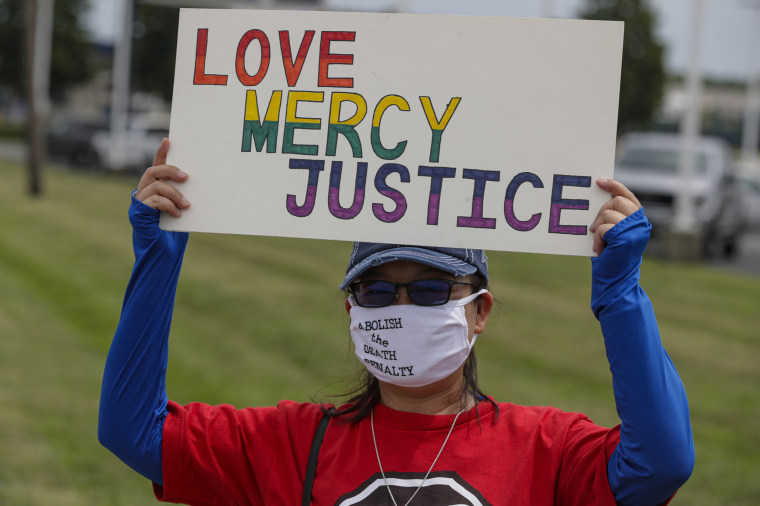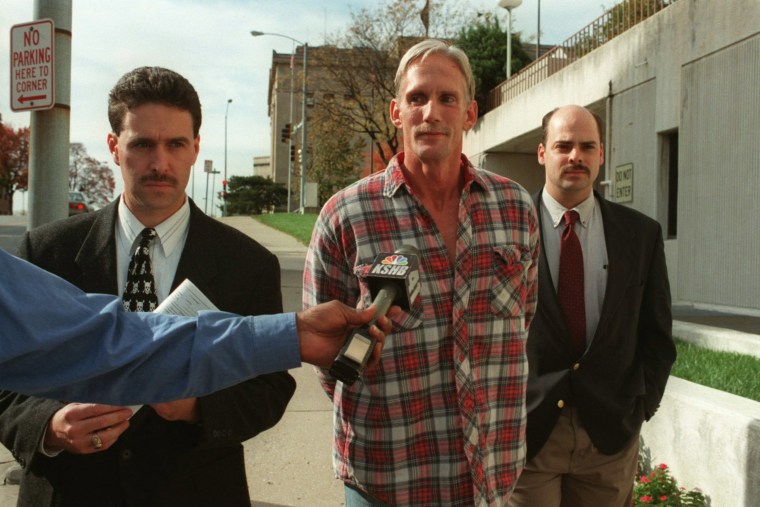TERRE HAUTE, Ind. — The Supreme Court has cleared the way for a second federal execution in as many days. The high court by a 5-4 vote early Thursday lifted two court orders keeping the execution of Wesley Ira Purkey on hold.
Purkey was convicted of kidnapping, raping and killing a 16-year-old girl before dismembering, burning and then dumping the teen’s body in a septic pond. He was also convicted in a state court in Kansas after using a claw hammer to kill an 80-year-old woman who suffered from polio.
Purkey’s lawyers had contended that he had dementia and was unfit to be executed. They also said that if Purkey’s execution did not take place Wednesday, the government would need to set a new date. But government lawyers said there was no obstacle to going through with the execution Thursday if the Supreme Court lifted the injunctions.
Purkey was scheduled to be put to death by lethal injection at the Federal Correctional Complex in Terre Haute, Indiana. On Tuesday, Daniel Lewis Lee was put to death at the same facility after his eleventh-hour legal bids failed. He was convicted of killing an Arkansas family in a 1990s plot to build a whites-only nation.
Purkey, 68, of Lansing, Kansas, would be the second.

Justice Sonia Sotomayor wrote that “proceeding with Purkey’s execution now, despite the grave questions and factual findings regarding his mental competency, casts a shroud of constitutional doubt over the most irrevocable of injuries.” She was joined by fellow liberal justices Ruth Bader Ginsburg, Stephen Breyer and Elena Kagan.
The issue of Purkey’s mental health arose in the runup to his 2003 trial and when jurors had to decide whether he should be put to death in the killing of 16-year-old Jennifer Long in Kansas City, Missouri.
Prosecutors said he raped and stabbed her, dismembered her with a chainsaw, burned the body and dumped her ashes in a pond in Kansas. Purkey was separately convicted and sentenced to life in the beating death of 80-year-old Mary Ruth Bales, of Kansas City, Kansas.
Purkey’s lawyers argued recent filings he that he suffers from advancing Alzheimer’s disease.
“He has long accepted responsibility for the crime that put him on death row,” one of his lawyers, Rebecca Woodman, said. “But as his dementia has progressed, he no longer has a rational understanding of why the government plans to execute him.”
Glenda Lamont, the mother of the slain teenager, told The Kansas City Star last year she planned to attend Purkey’s execution.
“I don’t want to say that I’m happy,” Lamont said. “At the same time, he is a crazy madman that doesn’t deserve, in my opinion, to be breathing anymore.”
Repeatedly on Wednesday, a federal judge also denied a request from Dustin Lee Honken, an Iowa drug kingpin scheduled to be executed on Friday, to delay his execution. The judge said he would not delay Honken’s execution due to the coronavirus pandemic and said the Bureau of Prisons was in the best position to weigh the health risks.
